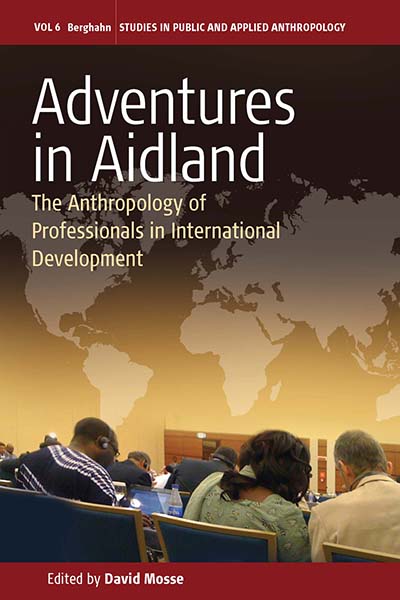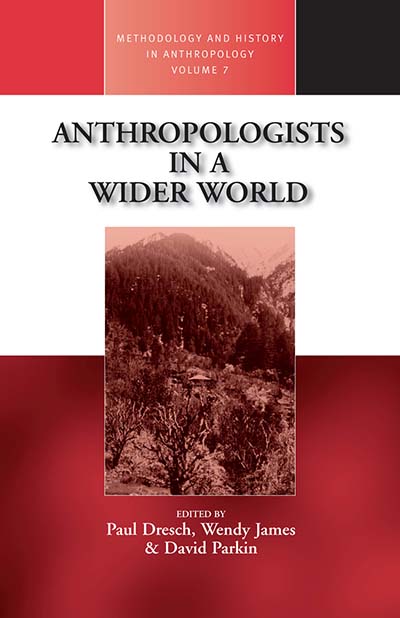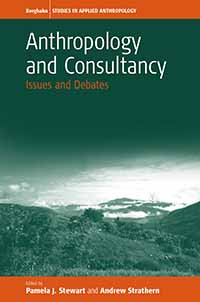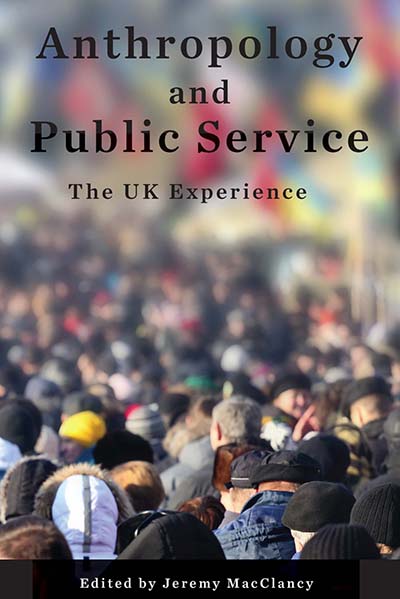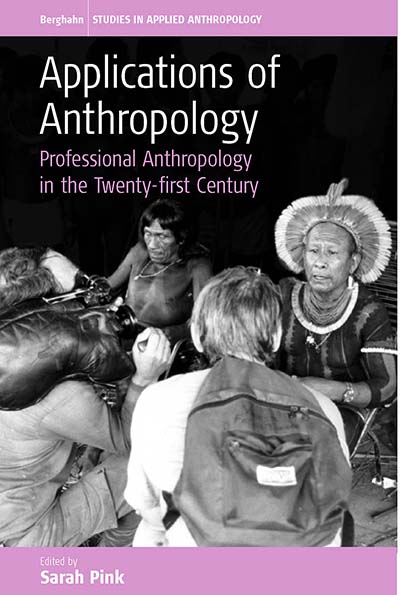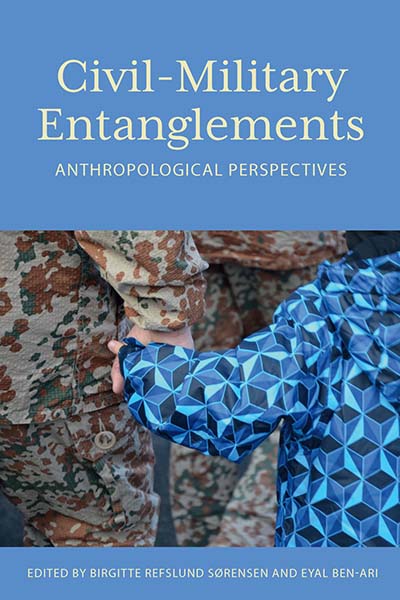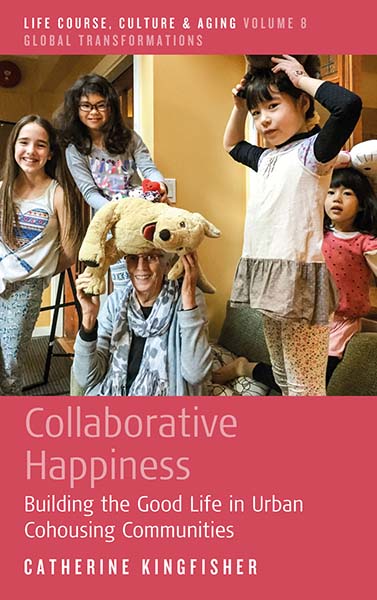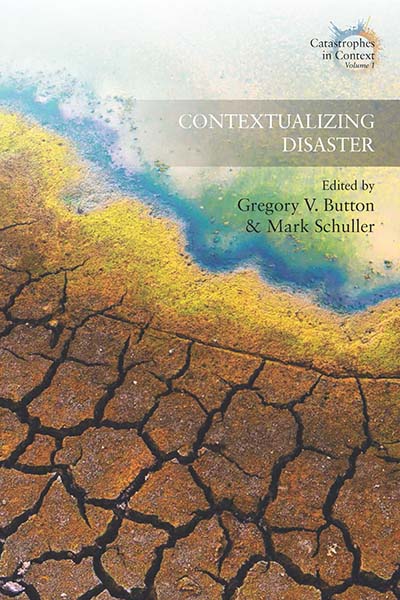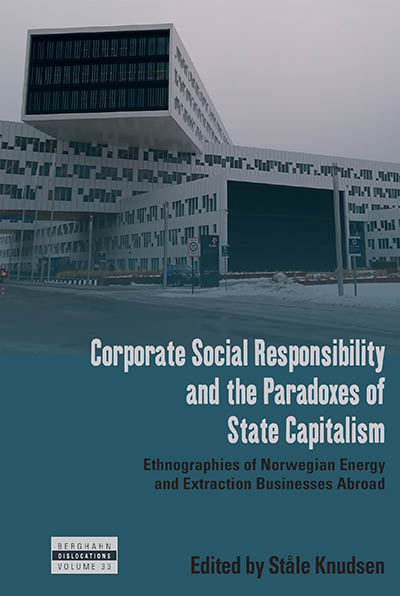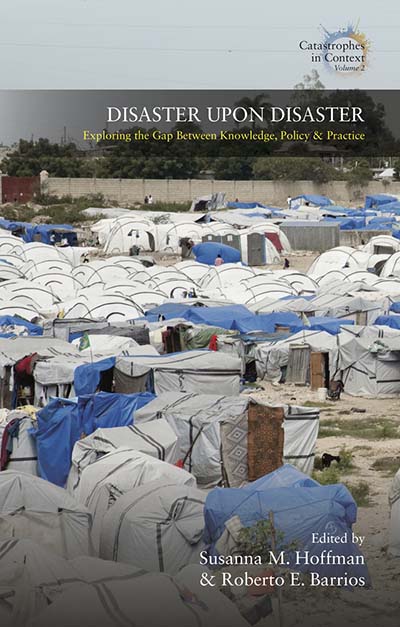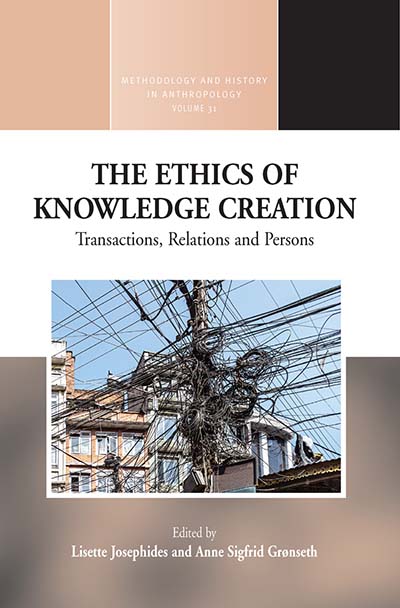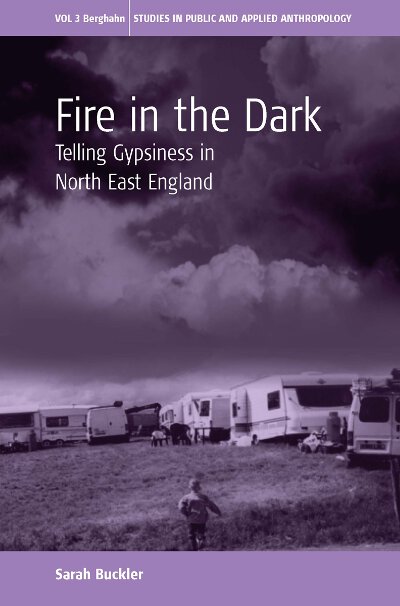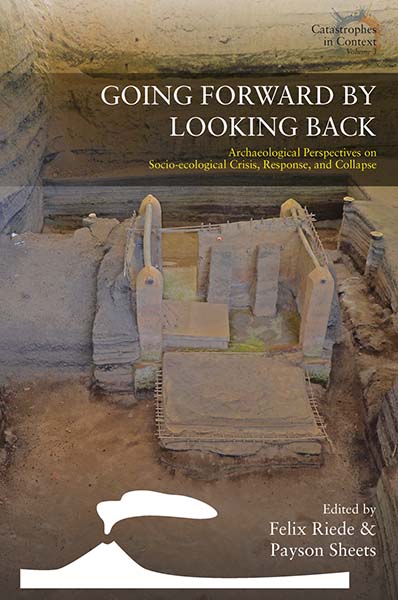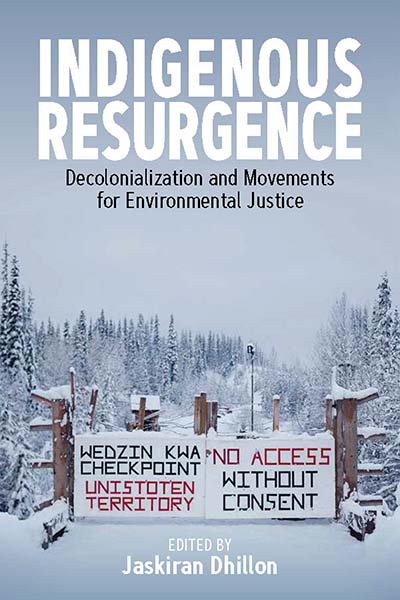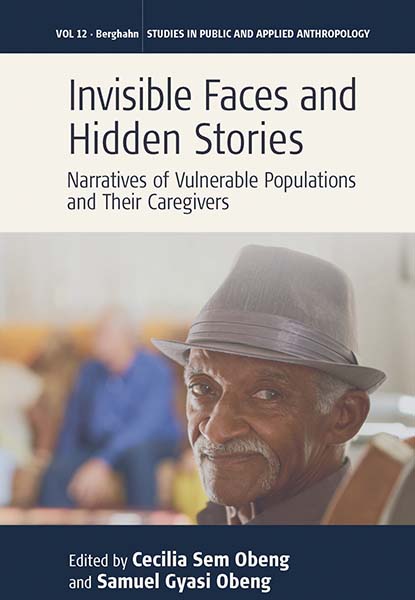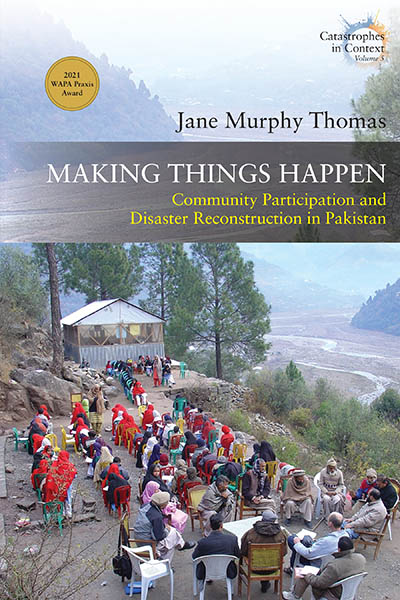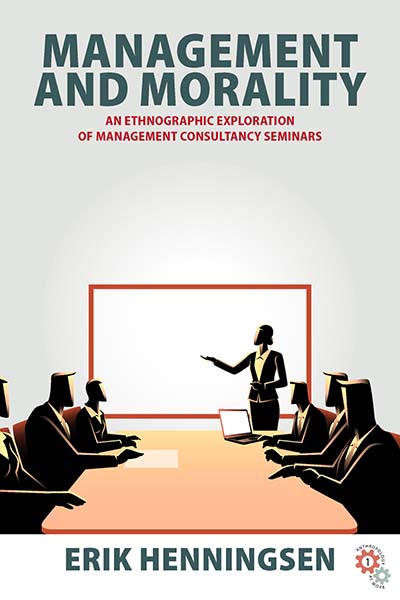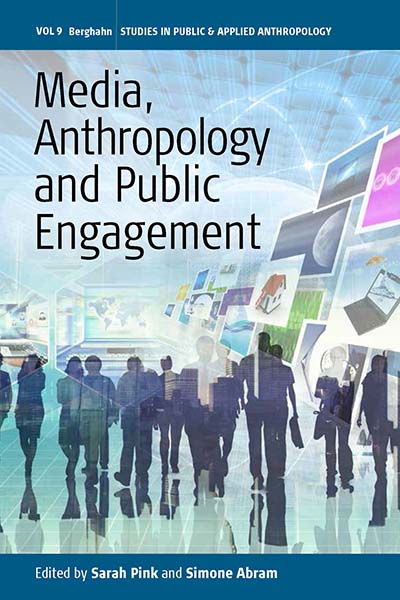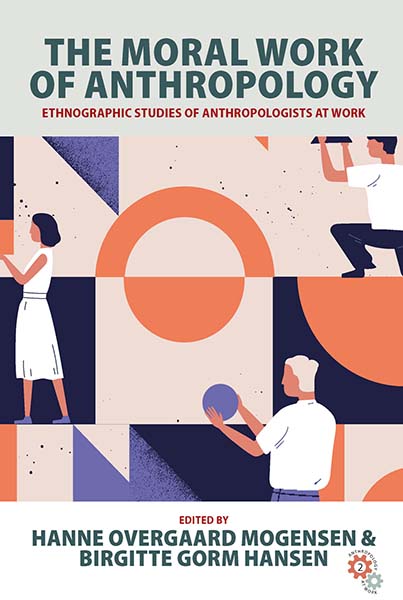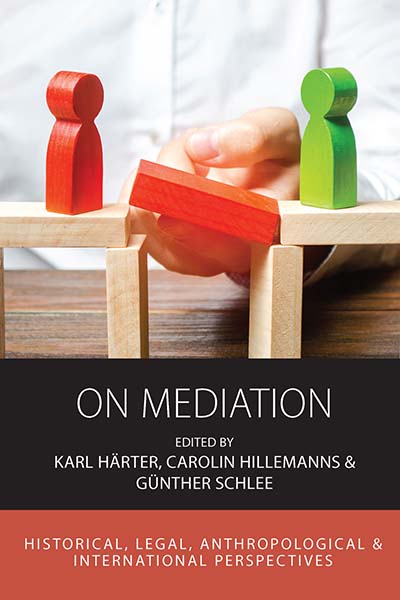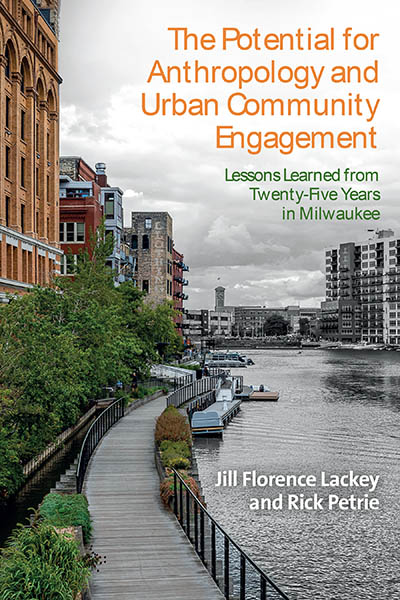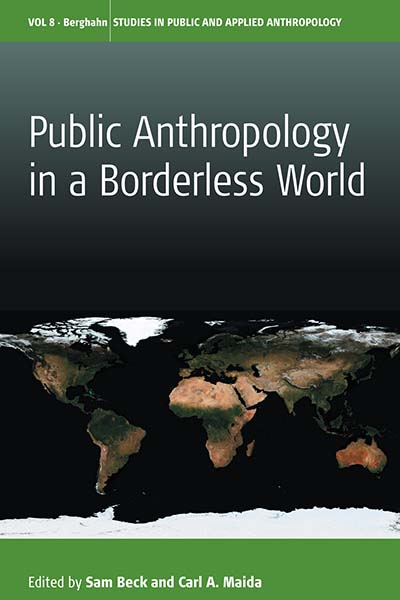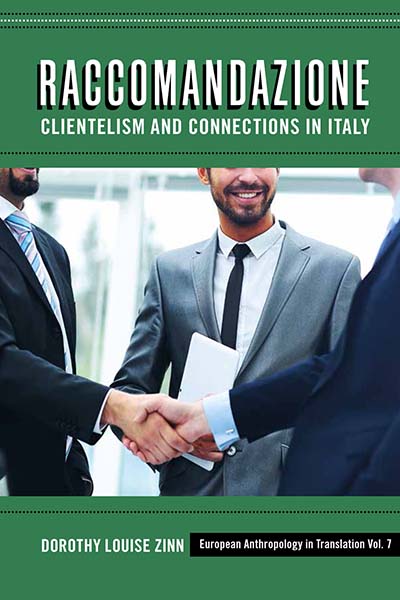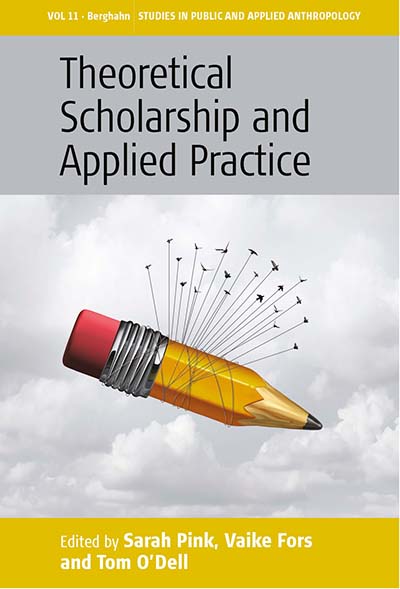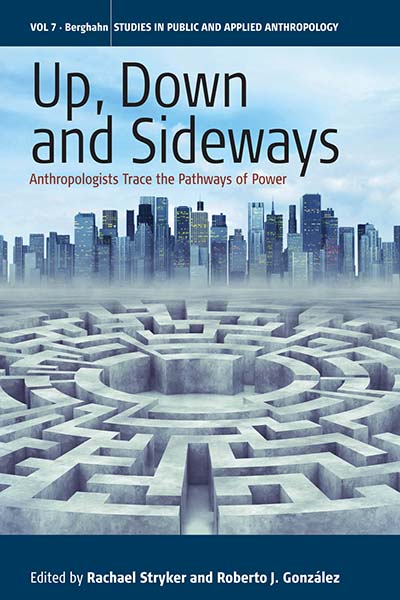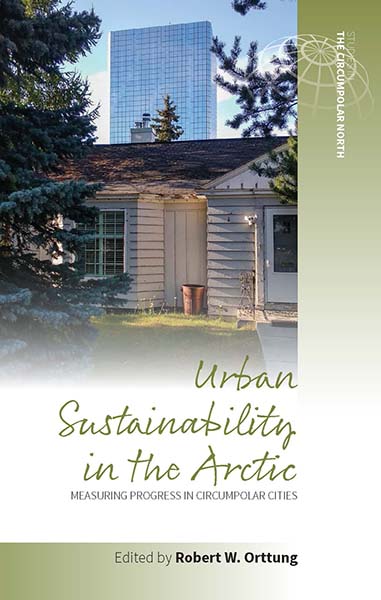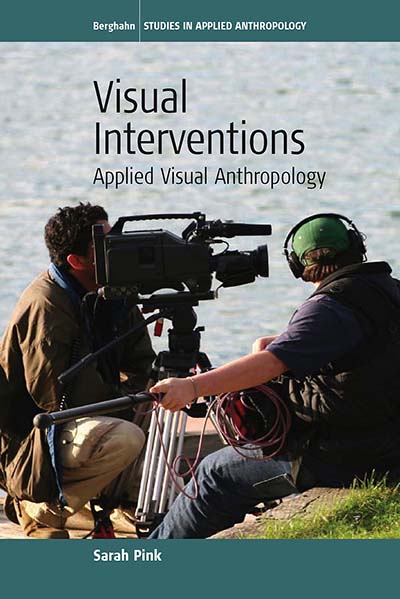Home -> Browse
-

Adventures in Aidland
The Anthropology of Professionals in International Development
Mosse, D. (ed)
Anthropological interest in new subjects of research and contemporary knowledge practices has turned ethnographic attention to a wide ranging variety of professional fields. Among these the encounter with international development has perhaps been longer and more intimate than any of the others. Anthropologists have drawn critical attention to the interfaces and social effects of development’s discursive regimes but, oddly enough, have paid scant attention to knowledge producers themselves, despite anthropologists being among them. This is the focus of this volume. It concerns the construction and transmission of knowledge about global poverty and its reduction but is equally interested in the social life of development professionals, in the capacity of ideas to mediate relationships, in networks of experts and communities of aid workers, and in the dilemmas of maintaining professional identities. Going well beyond obsolete debates about ‘pure’ and ‘applied’ anthropology, the book examines the transformations that occur as social scientific concepts and practices cross and re-cross the boundary between anthropological and policy making knowledge.
Subjects: Applied Anthropology Development Studies
-

Anthropologists in a Wider World
Essays on Field Research
Dresch, P., James, W. & Parkin, D.
The tradition of intensive fieldwork by a single anthropologist in one area has been challenged by new emphasis on studying historical patterns, wider regions, and global networks. Some anthropologists have started their careers from the new vantage point, amidst a chorus of claims for innovative methodologies. Others have lived through these changes of perspective and are able to reflect on them, while re-evaluating the place of fieldwork within the broader aims of general anthropology. This book explores these transformations of world view and approach as they have been experienced by anthropological colleagues, a number of whom began their work very much in the earlier tradition. They cover experiences of field research in Africa, Papua New Guinea, South America, Central and South Asia, Europe, the Middle East, Indonesia, Japan and China. Constant through the chapters is a distinctively qualitative empirical approach, once associated with the village but now being developed in relation to large-scale or dispersed communities.
Subjects: Theory and Methodology Applied Anthropology
-

Anthropology and Consultancy
Issues and Debates
Stewart, P. & Strathern, A. (eds)
More and more, anthropologists are recruited as consultants by government departments, companies or as observers of development processes in their field areas generally. Although these roles can be very gratifying, they can create ambiguous situations for the anthropologists who find that new pressures and responsibilities are placed upon them for which their training did not prepare them. This volume explores some of the problems, opportunities, issues, debates, and dilemmas surrounding these roles. The geographic focus of the studies is Papua New Guinea, but the topic and its importance apply widely through the world, for example, Africa, South America, Australia, and the Pacific in general, as well as in relation to indigenous groups in Canada and elsewhere. All the authors have first-hand experience and they address these new pressures and responsibilities of anthropological research. The book's chapters are written in a way that combines scholarship with a style accessible to general readers.
Subject: Applied Anthropology
Area: Asia-Pacific
-

Anthropology and Public Service
The UK Experience
MacClancy, J. (ed)
These days an increasing number of social anthropologists do not find employment within academia. Rather, many find jobs with commercial organizations or in government, where they run research teams and create policy. These scholars provide a much-needed social dimension to government thinking and practice. Anthropology and Public Service shows how anthropologists can set new agendas, and revise old ones in the public sector. Written for scholars and students of various social sciences, these chapters include discussions of anthropologists’ work with the Department for International Development, the Ministry of Defence, the UK Border Agency, and the Cabinet Office, and their contributions to prison governance.
Subject: Applied Anthropology
Area: Europe
-

Applications of Anthropology
Professional Anthropology in the Twenty-first Century
Pink, S. (ed)
At the beginning of the twenty-first century the demand for anthropological approaches, understandings and methodologies outside academic departments is shifting and changing. Through a series of fascinating case studies of anthropologists’ experiences of working with very diverse organizations in the private and public sector this volume examines existing and historical debates about applied anthropology. It explores the relationship between the "pure and the impure" – academic and applied anthropology, the question of anthropological identities in new working environments, new methodologies appropriate to these contexts, the skills needed by anthropologists working in applied contexts where multidisciplinary work is often undertaken, issues of ethics and responsibility, and how anthropology is perceived from the ‘outside’. The volume signifies an encouraging future both for the application of anthropology outside academic departments and for the new generation of anthropologists who might be involved in these developments.
Subjects: Applied Anthropology Medical Anthropology
-

Civil–Military Entanglements
Anthropological Perspectives
Sørensen, B. R. & Ben-Ari, E. (eds)
Military-civilian encounters are multiple and diverse in our times. Contributors to this volume demonstrate how military and civilian domains are constituted through entanglements undermining the classic civil-military binary and manifest themselves in unexpected places and manners. Moreover, the essays trace out the ripples, reverberations and resonations of civil-military entanglements in areas not usually associated with such ties, but which are nevertheless real and significant for an understanding of the roles war, violence and the military play in shaping contemporary societies and the everyday life of its citizens.
Subjects: Peace and Conflict Studies Applied Anthropology
-

Collaborative Happiness
Building the Good Life in Urban Cohousing Communities
Kingfisher, C.
Understudied relative to other forms of intentional community, and under-recognized in policy-making circles, urban cohousing communities situate wellbeing as simultaneously social and subjective, while catering for groups of people so diverse in age. Collaborative Happiness looks at two such urban cohousing communities: Kankanmori, in Tokyo; and Quayside Village, in Vancouver. In expanding beyond mainstream approaches to happiness focused exclusively on the individual, Quayside Village and Kankanmori provide an alternative model for how to understand and practice the good life in an increasingly urbanized world marked by crisis of both social and environmental sustainability.
Subjects: Applied Anthropology Urban Studies Sociology Sustainable Development Goals
-

Contextualizing Disaster
Button, G. V. & Schuller, M. (eds)
Contextualizing Disaster offers a comparative analysis of six recent "highly visible" disasters and several slow-burning, "hidden," crises that include typhoons, tsunamis, earthquakes, chemical spills, and the unfolding consequences of rising seas and climate change. The book argues that, while disasters are increasingly represented by the media as unique, exceptional, newsworthy events, it is a mistake to think of disasters as isolated or discrete occurrences. Rather, building on insights developed by political ecologists, this book makes a compelling argument for understanding disasters as transnational and global phenomena.
Subjects: Anthropology (General) Environmental Studies (General) Applied Anthropology
-

Corporate Social Responsibility and the Paradoxes of State Capitalism
Ethnographies of Norwegian Energy and Extraction Businesses Abroad
Knudsen, S. (ed)
Through a series of case studies in diverse regions of the world, this book explores how transnational Norwegian energy and extractive industries handle corporate social responsibility (CSR) when operating abroad in places such as China, Brazil, and Turkey. With significant state ownership and embeddedness in the Nordic societal model, Norwegian capitalism is often represented as “benign” or ethical. By tracing CSR policy and practice—from headquarters to operations—this volume critically explores the workings of Norwegian corporate capitalism and its engagement with key issues of responsibility, accountability, and sustainability.
Subjects: Political and Economic Anthropology Environmental Studies (General) Applied Anthropology Sustainable Development Goals
Area: Northern Europe
-

Disaster Upon Disaster
Exploring the Gap Between Knowledge, Policy and Practice
Hoffman, S. M. & Barrios, R. E. (eds)
A consistent problem that confronts disaster reduction is the disjunction between academic and expert knowledge and policies and practices of agencies mandated to deal with the concern. Although a great deal of knowledge has been acquired regarding many aspects of disasters, such as driving factors, risk construction, complexity of resettlement, and importance of peoples’ culture, very little has become protocol and procedure. Disaster Upon Disaster illuminates the numerous disjunctions between the suppositions, realities, agendas, and executions in the field, goes on to detail contingencies, predicaments, old and new plights, and finally advances solutions toward greatly improved outcomes.
Subjects: Environmental Studies (General) Anthropology (General) Applied Anthropology
-

The Ethics of Knowledge Creation
Transactions, Relations, and Persons
Josephides, L. & Grønseth, A. S. (eds)
Anthropology lies at the heart of the human sciences, tackling questions having to do with the foundations, ethics, and deployment of the knowledge crucial to human lives. The Ethics of Knowledge Creation focuses on how knowledge is relationally created, how local knowledge can be transmuted into ‘universal knowledge’, and how the transaction and consumption of knowledge also monitors its subsequent production. This volume examines the ethical implications of various kinds of relations that are created in the process of ‘transacting knowledge’ and investigates how these transactions are also situated according to broader contradictions or synergies between ethical, epistemological, and political concerns.
Subjects: Applied Anthropology Theory and Methodology
-

Fire in the Dark
Telling Gypsiness in North East England
Buckler, S.
Anthropologists who are employed to change the worlds they are researching find themselves in a potentially contradictory position. Combining the various roles and expectations involved in working with Gypsies and local government at the same time as conducting anthropological research, provides the overall perspective of this study. It is an unusual and effective balance of insightful ethnography and anthropological theory with the perspective of someone employed to carry out applied work. An effective and creative use of metaphor structures the entire work and allows complex ideas to be conveyed in an accessible way. Drawing upon traditional anthropological approaches such as kinship and story telling and engaging with the works of major social theorists such as Weber, Bourdieu and Foucault as well as the work of contemporary anthropologists, this work demonstrates the use of anthropology in understanding changing situations and in deciding how best to manage such situations.
Subjects: Applied Anthropology Sociology Anthropology (General)
Area: Europe
-

From Bullies to Officers and Gentlemen
How Notions of Professionalism and Civility Transformed the Ghana Armed Forces
Agyekum, H. A.
Based on unprecedented access to the Ghanaian military barracks and inspired by the recent resurgence of coups in West Africa, Agyekum assesses why and how the Ghana Armed Forces were transformed from an organization that actively orchestrated coups into an institution that accepts the authority of the democratically elected civilian government. Focusing on the process of professionalization of the Ghanaian military, this ethnography based monograph examines both historical and contemporary themes, and assesses the shift in military personnel from ‘Buga Buga’ soldiers – uneducated, lower-class soldiers, human rights abusers – to a more ‘modern’ fighting force.
Subjects: Peace and Conflict Studies Applied Anthropology
Area: Africa
-

Going Forward by Looking Back
Archaeological Perspectives on Socio-Ecological Crisis, Response, and Collapse
Riede, F. & Sheets, P. (eds)
Catastrophes are on the rise due to climate change, as is their toll in terms of lives and livelihoods as world populations rise and people settle into hazardous places. While disaster response and management are traditionally seen as the domain of the natural and technical sciences, awareness of the importance and role of cultural adaptation is essential. This book catalogues a wide and diverse range of case studies of such disasters and human responses. This serves as inspiration for building culturally sensitive adaptations to present and future calamities, to mitigate their impact, and facilitate recoveries.
Subjects: Archaeology Applied Anthropology Environmental Studies (General) Sustainable Development Goals
-

Indigenous Experiences with Collaborative Governance
Moving Toward Equitable Partnerships
Companion, M. & Rivera, J. D. (eds)
Governance processes often fail to integrate Indigenous perspectives or address issues such as sovereignty, self-determination, and decolonization, making successful policy outcomes difficult to achieve. It is vital for Indigenous and non-Indigenous governments to collaborate in producing sustainable, mutually beneficial outcomes. This volume highlights the importance of authentic Indigenous inclusion in governance processes at national and subnational levels worldwide. Through case studies and best-practice models, it examines the opportunities and barriers Indigenous Peoples face in collaborative governance. In doing so, it offers recommendations for practice and policy that promote social equity.
Subjects: Sociology Political and Economic Anthropology Applied Anthropology
-

Indigenous Resurgence
Decolonialization and Movements for Environmental Justice
Dhillon, J.
From the Standing Rock Sioux Tribe’s resistance against the Dakota Access pipeline to the Nepalese Newar community’s protest of the Fast Track Road Project, Indigenous peoples around the world are standing up and speaking out against global capitalism to protect the land, water, and air. By reminding us of the fundamental importance of placing Indigenous politics, histories, and ontologies at the center of our social movements, Indigenous Resurgence positions environmental justice within historical, social, political, and economic contexts, exploring the troubling relationship between colonial and environmental violence and reframing climate change and environmental degradation through an anticolonial lens.
Subjects: Environmental Studies (General) Applied Anthropology Colonial History Sustainable Development Goals
-

Invisible Faces and Hidden Stories
Narratives of Vulnerable Populations and Their Caregivers
Obeng, C. S. & Obeng, S. G. (eds)
Dealing with narratives of vulnerable populations, this book looks at how they deal with dimensions of their social life, especially in regards to health. It reflects the socio-political ecologies like public hostility and stereotyping, neglect of their unique health needs, their courage to overcome adversity, and the love of family and healthcare providers in mitigating their problems. American society likes to give the impression that it is listening to the plight of vulnerable populations, but the stories in this volume prove otherwise.
Subjects: Medical Anthropology Applied Anthropology Sociology
Area: North America
-

Making Things Happen
Community Participation and Disaster Reconstruction in Pakistan
Murphy Thomas, J.
Drawing on the Pakistan Earthquake Reconstruction and Recovery Project (PERRP), this volume explores the sociocultural side of post-disaster infrastructure reconstruction. As the latter is often fraught with delays and even abandonment—one cause being ineffective interactions between construction and local people—PERRP used anthropological and participatory approaches. Along with strong construction management, such approaches led to the rebuilding being completed on time. As disasters are increasing in number and intensity, so too will be the need for reconstruction, for which PERRP has lessons to offer.
Subjects: Applied Anthropology Development Studies Sustainable Development Goals
Area: Asia
-

Management and Morality
An Ethnographic Exploration of Management Consultancy Seminars
Henningsen, E.
Drawing on extended ethnographic studies of management consultancies in the Oslo region of Norway, this book seeks to find a richer understanding of their role in contemporary work life and the attraction their practices exert on people. The author shows that management consultancy is an arena of meaning that should be analysed as a ‘cultural space’. With a detailed investigation into consultancy as a cultural phenomenon, Henningsen argues that its services can be viewed as a ‘micro-utopian’ vision which can lead to a happier working environment for individuals.
Subjects: Anthropology (General) Cultural Studies (General) Applied Anthropology
Area: Northern Europe
-

Media, Anthropology and Public Engagement
Pink, S. & Abram, S. (eds)
Contemporary anthropology is done in a world where social and digital media are playing an increasingly significant role, where anthropological and arts practices are often intertwined in museum and public intervention contexts, and where anthropologists are encouraged to engage with mass media. Because anthropologists are often expected and inspired to ensure their work engages with public issues, these opportunities to disseminate work in new ways and to new publics simultaneously create challenges as anthropologists move their practice into unfamiliar collaborative domains and expose their research to new forms of scrutiny. In this volume, contributors question whether a fresh public anthropology is emerging through these new practices.
Subjects: Applied Anthropology Media Studies
-

The Moral Work of Anthropology
Ethnographic Studies of Anthropologists at Work
Mogensen, H. & Hansen, B. G. (eds)
Looking at anthropologists at work, this book investigates what kind of morality they perform in their occupations and what the impact of this morality is. The book includes ethnographic studies in four professional arenas: health care, business, management and interdisciplinary research. The discussion is positioned at the intersection of ‘applied or public anthropology’ and ‘the anthropology of ethics’ and analyses the ways in which anthropologists can carry out ‘moral work’ both inside and outside of academia.
Subjects: Anthropology (General) Applied Anthropology
-

On Mediation
Historical, Legal, Anthropological and International Perspectives
Härter, K., Hillemanns, C. & Schlee, G. (eds)
Exploring mediation and related practices of conflict regulation, this book takes an interdisciplinary approach that includes historical, legal, anthropological and international perspectives. Divided into three sections, the volume observes historical and current relations between mediation and the criminal justice system and provides anthropological perspectives and case studies to explore mediation and arbitration in international arenas. In this regard, the book provides an innovative perspective on mediation and new insights into conflict regulation.
Subjects: Peace and Conflict Studies Applied Anthropology
-

The Potential for Anthropology and Urban Community Engagement
Lessons Learned from Twenty-Five Years in Milwaukee
Lackey, J. F. & Petrie, R.
The relationship between anthropology departments and their surrounding urban communities has been traditional limited by a number of factors. The Potential for Anthropology and Urban Community Engagement pushes past these limitations, developing a firm foundation from which applied anthropology can support grassroots research and lasting community programs. Using two partnering Milwaukee organizations as examples, this volume explores the need in urban neighborhoods for practicing anthropologists, how a high volume of asset-building programs can be developed by practicing anthropologists, and the potential efficacy of anthropology departments in partnering with urban neighborhoods.
Subjects: Applied Anthropology Urban Studies
Area: North America
-

Profiles of Anthropological Praxis
An International Casebook
Redding, T. M. & Cheney, C. C. (eds)
The book Profiles of Anthropological Praxis is something of a sequel to Anthropological Praxis: Translating Knowledge into Action, published in 1987 (Westview Press). As a casebook of anthropological projects, the new version shares a fascinating breadth of award-winning projects undertaken by applied anthropologists to address the needs of an array of stakeholders and situations. Each chapter will describe a problem and how a project attempted to address it with the following structure: Problem Overview, Project Description, Anthropologist’s Role and Impact, Outcomes, and the Anthropological Difference – that is, how the unique approaches of anthropology were effectively applied to address human problems.
Subjects: Applied Anthropology Theory and Methodology
-

Public Anthropology in a Borderless World
Beck, S. & Maida, C. A. (eds)
Anthropologists have acted as experts and educators on the nature and ways of life of people worldwide, working to understand the human condition in broad comparative perspective. As a discipline, anthropology has often advocated — and even defended — the cultural integrity, authenticity, and autonomy of societies across the globe. Public anthropology today carries out the discipline’s original purpose, grounding theories in lived experience and placing empirical knowledge in deeper historical and comparative frameworks. This is a vitally important kind of anthropology that has the goal of improving the modern human condition by actively engaging with people to make changes through research, education, and political action.
Subject: Applied Anthropology
-

Raccomandazione
Clientelism and Connections in Italy
Zinn, D. L.
The issue of patronage-clientelism has long been of interest in the social sciences. Based on long-term ethnographic research in southern Italy, this book examines the concept and practice of raccomandazione: the omnipresent social institution of using connections to get things done. Viewing the practice both from an indigenous perspective – as a morally ambivalent social fact – and considering it in light of the power relations that position southern Italy within the nesting relations of global Norths and Souths, it builds on and extends past scholarship to consider the nature of patronage in a contemporary society and its relationship to corruption.
Subjects: Anthropology (General) Cultural Studies (General) Applied Anthropology
Area: Southern Europe
-

Theoretical Scholarship and Applied Practice
Pink, S., Fors, V., & O'Dell, T. (eds)
Academics across the globe are being urged by universities and research councils to do research that impacts the world beyond academia. Yet to date there has been very little reflection amongst scholars and practitioners in these fields concerning the relationship between the theoretical and engaged practices that emerge through such forms of scholarship. Theoretical Scholarship and Applied Practice investigates the ways in which theoretical research has been incorporated into recent applied practices across the social sciences and humanities. This collection advances our understanding of the ethics, values, opportunities and challenges that emerge in the making of engaged and interdisciplinary scholarship.
Subject: Applied Anthropology
Areas: Europe North America
-

Time Work
Studies of Temporal Agency
Flaherty, M. G., Meinert, L., & Dalsgård, A. L. (eds)
Examining how people alter or customize various dimensions of their temporal experience, this volume discovers how we resist external sources of temporal constraint or structure. These ethnographic studies are international in scope and look at many different countries and continents. They come to the overall conclusion that people construct their own circumstances with the intention to modify their experience of time.
Subjects: Applied Anthropology Sociology Anthropology (General)
-

Unraveling Management
Its Institutions, Practices and Beliefs
Carrier, J. G. (ed)
Management is everywhere. Schools teach it and professional organisations counsel about it. Books and articles are written for managers and about them. Management is usually understood in terms of styles of management, management policies and successful management but few tend to think about management in an abstract sense. This book addresses this gap and provokes us to think seriously about this assumed entity. It does so in various ways, by treating management as an institution, as an object of study, as engaged with culture in different ways and as laden with conflicts.
Subjects: Political and Economic Anthropology Applied Anthropology Sociology
-

Up, Down, and Sideways
Anthropologists Trace the Pathways of Power
Stryker, R. & González, R. (eds)
Using a “vertical slice” approach, anthropologists critically analyze the relationship between undemocratic uses and abuses of power and the survival of the human species. The contributors scrutinize modern institutions in a variety of regions—from Russia and Mexico to South Korea and the U.S. Up, Down, and Sideways is an ethnographic examination of such phenomena as debtculture, global financial crises, food insecurity, indigenous land and resource appropriation, the mismanagement of health care, andcorporate surrogacy within family life. With a preface by Laura Nader, this isessential reading for anyone seeking solid theories and concrete methods to inform activist scholarship.
Subjects: Anthropology (General) Applied Anthropology
-

Urban Sustainability in the Arctic
Measuring Progress in Circumpolar Cities
Orttung, R. W.
Urban Sustainability in the Arctic advances our understanding of cities in the far north by applying elements of the international standard for urban sustainability (ISO 37120) to numerous Arctic cities. In delivering rich material about northern cities in Alaska, Canada, and Russia, the book examines how well the ISO 37120 measures sustainability and how well it applies in northern conditions. In doing so, it links the Arctic cities into a broader conversation about urban sustainability more generally.
Subjects: Environmental Studies (General) Applied Anthropology Urban Studies Sustainable Development Goals
Area: Circumpolar
-

Visual Interventions
Applied Visual Anthropology
Pink, S. (ed.)
Visual anthropology has proved to offer fruitful methods of research and representation to applied projects of social intervention. Through a series of case studies based on applied visual anthropological work in a range of contexts (health and medicine, tourism and heritage, social development, conflict and disaster relief, community filmmaking and empowerment, and industry) this volume examines both the range contexts in which applied visual anthropology is engaged, and the methodological and theoretical issues it raises.
Subjects: Applied Anthropology Media Studies
-

Voices of Long-Term Care Workers
Elder Care in the Time of COVID-19 and Beyond
Freidus, A. & Shenk, D.
There were many challenges, successes, and concerns in providing long-term care to older adults during the COVID-19 pandemic. Looking at central North Carolina, the authors highlight the implications of providing long-term care to older Americans, with an emphasis on the importance of communication, resilience of staff, and value of human infrastructure.
Based on extensive interviews, this collection of essays reflects on the participants’ individual experiences and represents the voices of staff and caregivers working in long-term residential care communities, in-home and community-based programs, as well as regional aging service providers and advocates.
Subjects: Medical Anthropology Sociology Applied Anthropology
Area: North America


